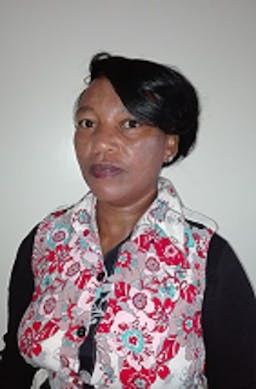Women Economic Empowerment through Agriculture in Northern Tanzania
Apr 30, 2019
Story
Due to the inconsistency of rainfall in my country the United Republic of Tanzania; especially the semi arid lands, many people lost large numbers of their livestock. With the persistence of the long dry spells these community of farmers have drifted into high poverty levels; a situation that has drastically affected many families and causing negative transitions in their lives.
People especially livestock farmers were hard hit. The shifting trend of animals to far off areas in search of pasture was inevitable. Most of them were forced to move further and further away from their settlements. Animals and people all needed water. Families needed food too. The water levels were so low but since water is a basic necessity none of them could do without it.
What were they to do? They were left with no much option but to dig out water from the dry sandy river beds. The river beds was no longer holding enough water. Women waited long hours to get water to take home, others carrying their babies with them.
Most evident of the impact of climate change was the health of the children especially between the ages of 5- 9 years. During one of my visits to some homes (part of my work) I realized that some children were suffering they were malnourished. The health of some nursing mothers had deteriorated too. This was an indication that food was a problem. One woman Sinyati (not her real name) succumbed to death, a situation of cases that go unreported. This kind of health issue was not common among the local community before.
I thought of how I could help and did the following; first I advised them to take their children to hospital whenever such cases arose. Doctors, nurses and local leaders might never know what is happening at the villages unless they get information to enable them help such families. In a case like that of Sinyati, how many other women and children have suffered silently, probably died, buried quietly, not reported and the fact only known to their immediate families.
Secondly, I decided to go an extra mile to educate a group of women from that community on the importance of a good diet for their children and themselves.
Yes, I knew there was water crisis. The temperatures were high and the water levels were low. Was this the right time to talk about this? Again, yes it was. It was time for me to try something out to help them. I then organized training for women on how to prepare and develop small manageable vegetable gardens sometimes know as kitchen gardens. I invited two farmer volunteers and we trained them. It proved that with little water they could provide their families with vegetables for healthy families. Today, some women from the group are lucky to be near a water source to plant vegetables for sale.
After the training they adopted the simple agricultural knowledge & skills, started their small vegetable gardens. Today they use vegetables from their gardens and sell the rest. With the knowledge and skills gained the families and especially children will not suffer from malnutrition like before.
Although the women do not have a formal education they are now well equipped with knowledge and skills that are very helpful to them, their families and community. There is a ready market for vegetables and today some women from a sub village called Olashapani in Longido District in Northern Tanzania have decided to make it their own business to become Economically Empowered through agriculture.
“Every little contribution we make towards improving the health of our people wherever are, we improve on our economy and that of the world”.




